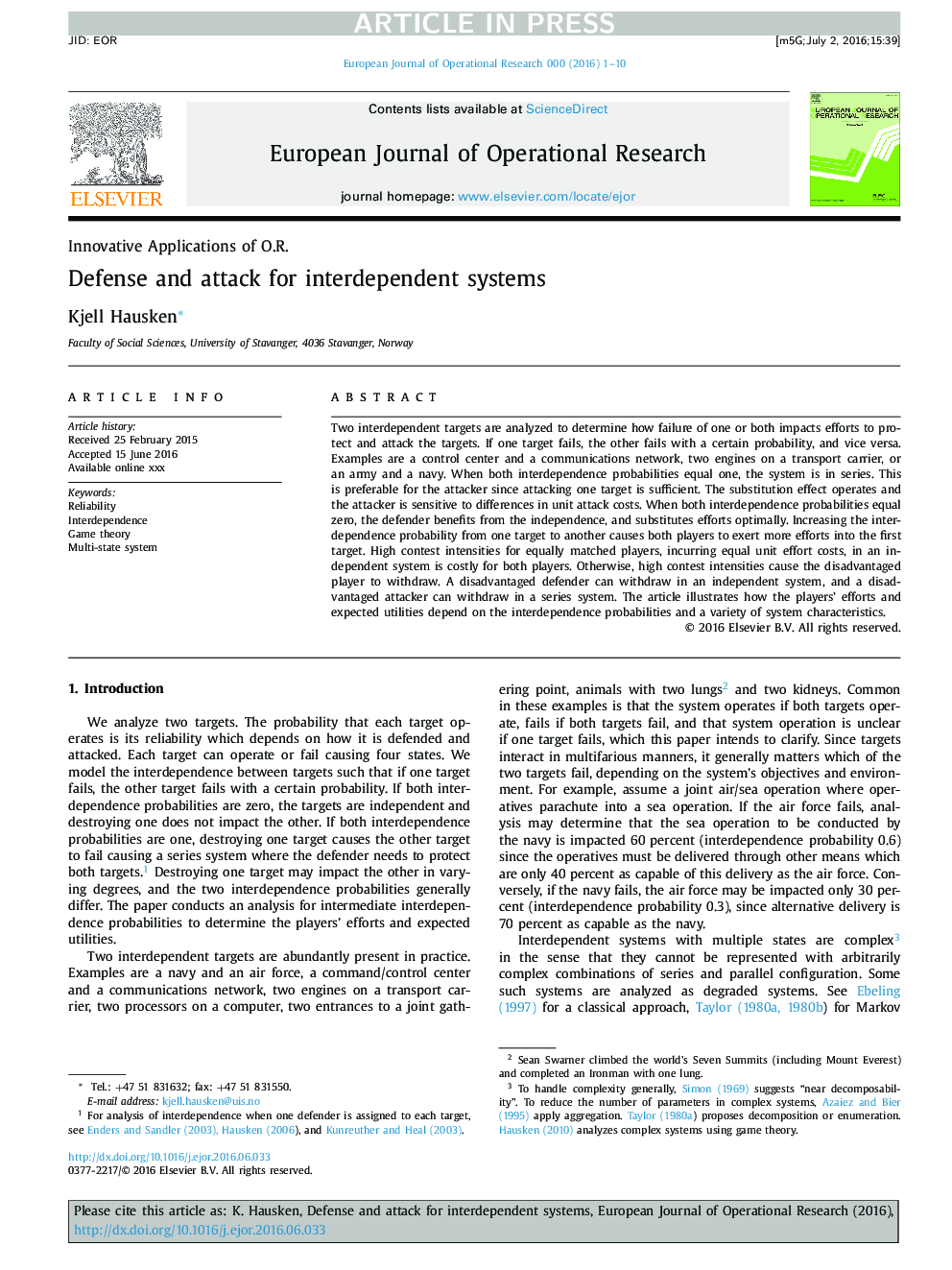| Article ID | Journal | Published Year | Pages | File Type |
|---|---|---|---|---|
| 4960230 | European Journal of Operational Research | 2017 | 10 Pages |
Abstract
Two interdependent targets are analyzed to determine how failure of one or both impacts efforts to protect and attack the targets. If one target fails, the other fails with a certain probability, and vice versa. Examples are a control center and a communications network, two engines on a transport carrier, or an army and a navy. When both interdependence probabilities equal one, the system is in series. This is preferable for the attacker since attacking one target is sufficient. The substitution effect operates and the attacker is sensitive to differences in unit attack costs. When both interdependence probabilities equal zero, the defender benefits from the independence, and substitutes efforts optimally. Increasing the interdependence probability from one target to another causes both players to exert more efforts into the first target. High contest intensities for equally matched players, incurring equal unit effort costs, in an independent system is costly for both players. Otherwise, high contest intensities cause the disadvantaged player to withdraw. A disadvantaged defender can withdraw in an independent system, and a disadvantaged attacker can withdraw in a series system. The article illustrates how the players' efforts and expected utilities depend on the interdependence probabilities and a variety of system characteristics.
Related Topics
Physical Sciences and Engineering
Computer Science
Computer Science (General)
Authors
Kjell Hausken,
